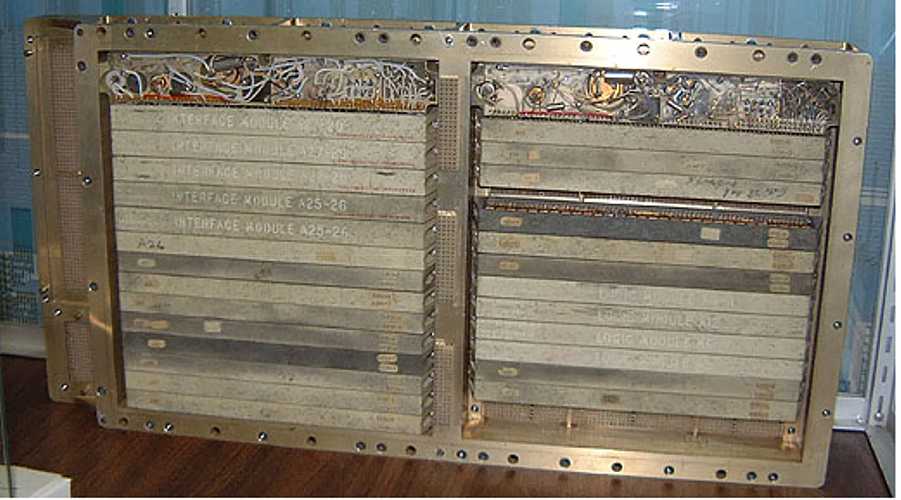The episode I just watch is called "Navigation."It details the creation of the Apollo command module guidance computer (AGC) by the MIT Instrumentation Lab.

Apollo Guidance Computer Specifications:
Instruction Set: Approximately 20 instructions;
100 noun-verb pairs, data up to triple-precision
Word Length: 16 bits (14 bits + sign + parity)
Memory: ROM (rope core) 36K words; RAM (core) 2K words
Disk: None
Performance: approx. Add time - 20us
Basic machine cycle: 2.048 MHz
Technology: RTL bipolar logic (flat pack)
Size: 24" x 12.5" x 6" (HWD)
Weight: 70 lbs;
Number produced: 75
Cost: Unknown.
Power consumption: Operating: 70W @ 28VDC; Standby 15.0 watts
There were a few bits of information I thought were interesting:
At the time they were building the AGC the 'integrated chip' was just being developed. It's a frequently cited that the space program and perhaps the AGC more than any other single part of this program that drove IC development, an observation Eldon Hall makes in his book Journey to the Moon. At one point NASA was consuming 60% of all chips being manufactured. They would weight them, then immerse them in a bath of freon. If they weighed even a few micrograms greater they would toss the entire batch away since there had to be some flaw which absorbed some of the freon.
It is common to hear that many of our devices are more powerful than the Apollo guidance computer, but I never heard what the total was until now - 72kb. A $100 MP3 player has 50,000 times more storage space then the computer that got Apollo to the Moon. I think back to the Commodore 64 I had and even it was pretty close to the processing AGC power (I wonder if the MIT guys "peeked and poked")
The programs were literally hardwired and "weaved" together using rope memory.
The computer's other error codes included error 00404, which was shorthand for "IMU orientation unknown." This has been compared to the HTTP 404 "browser navigation" error code, although the later was not based on it.
(If one is really into this stuff feel free to download the GNU Virtual AGC or build a real one in your basement. The original schematics are available.) Sphere: Related Content




No comments:
Post a Comment